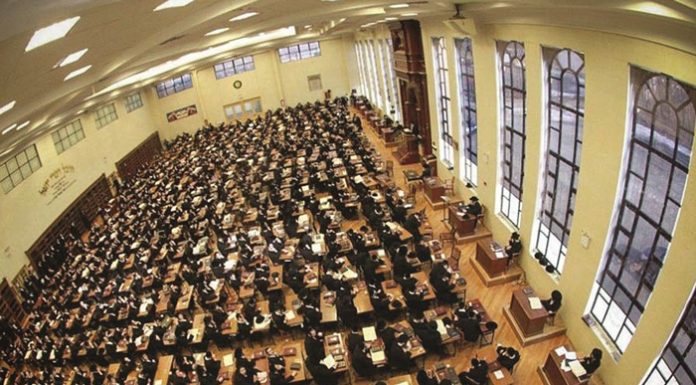When word spread that three Jewish filmmakers had been kidnapped in Nigeria, the situation looked grim. The three men were suspected of aiding the separatist movement, a crime that could carry a sentence of many years in prison.
Unwittingly, they were caught in a web of sectarian politics, anti-Semitism and misinformation. Getting out of it took a lot of siyata dishmaya, resilience and help from around the world. So when they were released from a Nigerian prison after nearly three weeks in captivity, there was great joy.
The three filmmakers—Rudy Rochman, Noam Leibman and Edouard David Benaym—had been in the country filming a documentary entitled We Were Never Lost.
Now that they have safely returned to Israel, I spoke to Rudy about the group’s ordeal in Africa, and their plans for the future.
“On Friday, my team and I had planned to spend the day filming, documenting the Igbo tribe’s preparations for Shabbat. They were going to do a youth Shabbat, and all of the young people would be coming from all over Nigeria. Instead, at 7:00 in the morning, we were greeted by about a dozen gunmen wearing ski masks who claimed to be the police and said we had to come with them. ‘Don’t worry,’ they told us. ‘It will only take an hour. You’ll speak to our director and then come back.’
“But they obviously never let us go back. They never officially arrested us, which is also why we never had the basic rights to an attorney or a phone call. According to international law, you have to release someone after 48 hours if you don’t have any evidence against him, so they listed our status as being there of our own free will. But if we tried to leave, we would be tossed right back into the cage. They used legal fiction to detain us without reason.”
The group was initially taken to the south of Nigeria. Along with Rudy, Noam and David were a man who served as their Nigerian “fixer,” and the leader of the Igbo community—a woman named Lisbon.
“The five of us were held in a cell for about 24 hours, after which we were transported to Abuja, which is about nine hours away,” says Rudy. “They told us that, once we got to headquarters, we would be able to get our phones and passports back, and we would be allowed to speak to our ambassadors, who would be waiting for us. We arrived at midday the next day, and they physically threw us into a cage, because we refused to go in. We were held captive for 20 days. When they first came for us, we thought that if we just answered their questions they’d see right away that we were telling the truth, and everything would be okay. But that’s not the way they do things there. They interrogated us, and we answered all their questions and gave them all our footage. It seems that we had been set up, either by the movement that is seeking to connect itself to Israel and was looking for media attention, or by the government itself, which is very anti-Igbo and wouldn’t want a documentary that would empower them and talk about their Judaism to be successful.”





















